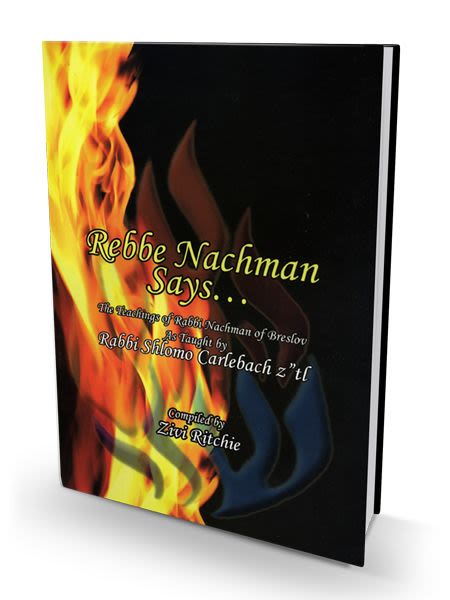
The Power of Psalms
Reciting Psalms (Tehillim) is a powerful protection against plague, besides that every Jew can bring down miracles by reading them with simplicity.

“And when you offer your peace offerings to Hashem, you shall offer them according to your good will” (Leviticus/Vayikra 19:5).
During the epidemic of the Black Plague in 5108 (1347), the Jews were blamed for the plague, and lies were told that the Jews had poisoned the wells. This led to Pogroms against the Jewish communities, and most of the Jewish communities in Germany and France were destroyed.
In the Sefer Emek HaMelech, an amazing story is told from that time in history. An amazing thing happened in one town, that nobody there attacked the Jews. Two years after the pogroms started in Germany, a simple Jew died in this town. He could barely learn a verse in Chumash, but he always recited Tehillim (Psalms). After his passing, he came to the rabbi of the town in a dream, and he told him to warn the Jews to run away from the town, because the town was protected until now by his recitation of Tehillim, but now this protection has been lost, and a pogrom is coming. The Rabbi immediately warned the entire community, and some left while others stayed, and shortly thereafter a pogrom came and only those who ran away were rescued.
From this story we see the tremendous power that every Jew has when he recites Tehillim. This one very simple and ignorant Jew protected his entire town by his recitation of Tehillim. This tremendous power of Tehillim has stood for our ancestors and for us in every generation, to bring down open kindnesses, and to be rescued from those who hate us, and from every evil, with the help of Hashem.
It is known from the words of our Sages, that King David asked Hashem, that when one is reciting Tehillim, it should be considered as he is studying the laws of Negaim (leprosy and plagues) and Ohalot (tents, which can spread impurity if a dead body is there).
The righteous explain based on this that through the recitation of Tehillim one is able to be spared from the need to follow the laws of negaim and ohalot, because one will not be stricken with plagues and illness, and he will not need to be quarantined like a leper, and nobody will die in his tent, God forbid!
Therefore, our sacred literature teaches that it is good to recite a few Psalms from Tehillim every day, especially right before or right after davening, and especially on Shabbat. Similarly, the Tzaddikim have taught that when it is a difficult time it is proper to recite more Psalms.
Once, when a cholera epidemic spread in Munkatch, my holy ancestor Rebbe Tzvi Hirsch of Ziditchov zy”a wrote a letter of encouragement to the residents of the town, and he encouraged them that at such a time they must remember to trust only Hashem, and in the end of the letter he taught them to finish the entire Book of Tehillim every week during the time of the epidemic, as this will bring Supernal Protection.
My holy ancestor, the Rebbe of Ziditchov zy”a also brings in his holy Sefer Ateres Tzvi (Parshas Vayechi), that he received a tradition from his teachers, that if someone is in trouble, he should recite the entire Book of Psalms in one sitting without interruption. They said that this is hinted to in a verse in the Psalms (106:2) “who can recite the powers of Hashem?”, because the word “yemalel” (recite) can be interpreted as “crush”, meaning that if one wishes to crush the difficult judgements that come from Hashem, “make heard all of His praises”, one should recite the entire Book of Psalms, and cause it to be heard.
For this reason, it became customary to recite Tehillim more than usual during the months of Elul and Tishrei, because at that time we need to draw down special mercy to be found innocent in judgement. I heard from my father, the previous Kalover Rebbe, zy”a, that my holy ancestor Rebbe Avraham Chaim of Linsk, zy”a would recite the entire Book of Tehillim 12 times on the day of “Shalosh Esrei Middos” (8 Tishrei, two days before Yom Kippur, which is a special day of prayer). Similarly, other tzaddikim had a custom to recite many Psalms during this season.
The main power of reciting Tehillim is the power of faith, because when a person turns to Hashem with thanksgiving for the past and prayer for the future, amidst faith and trust, he is drawn closer to his Father in Heaven, and in this merit, one is worthy to be protected from all evil, as is brought in the Sefer HaChinuch (mitzvah 512).
One person told the holy Rebbe Pinchas of Koritz zy”a that he does not recite Tehillim because he cannot concentrate on the meaning of the words at all. The Rebbe told him that before he recites Tefillim, he should say to Hashem “I cannot concentrate at all, but behold I am reciting these holy words before You, Master of the Universe, and these words were composed with Ruach HaKodesh, and You should accomplish whatever I need by virtue of this simple devotion!”
Reciting Tehillim is for everyone, as the Alexander Rebbe explains in Yismach Yisrael (Parshas Ekev), that King David composed the Book of Psalms in a way that it will work for every type of person in the world until Moshiach comes. He explains that this is what is said in the Book of Tehillim (Psalm 145:21) “may my mouth speak the praise of Hashem, and may all flesh bless His Holy Name forever!”, because the praises that King David composed were for every human in every situation and in every generation.
In our time, prayer can be compared to a sacrifice, as is written “and the offerings of our lips should come in the place of bulls” (Hosea/Hoshea 14:3), and similarly our Sages taught that the set schedule of prayer liturgy was placed to correspond with the daily sacrifices (Brachot 26b). The optional addition of prayers by reciting Tehillim is like a peace offering, which was optional, when a person’s heart is generous to bring extra nachas to the Blessed Creator, and to bring a person closer to Hashem, as is hinted to in the idea of a “peace offering” which brings peace and unity between the Jewish People and their Father in Heaven.
This is what we find here, that Hashem told the Jews in every generation that when they need to be saved from trouble, “do not turn to the idols,” which includes a prohibition to turn to people who think that they can do everything on their own, “and do not make graven idols for yourselves,” meaning do not make yourself into an idol by thinking that you can organize everything on your own, rather remember “I am Hashem your God,” everything is in Hashem’s Hand, and we must turn to Him.
This is why the scripture continues and says: “when you offer a peace offering to Hashem,” when you recite Psalms which are like a peace offering, “sacrifice it according to your own will,” the main purpose of a sacrifice is that there should be good will and a generous spirit with faith and trust, for by this every Jew can accomplish great things by reciting Tehillim, bringing salvations to himself and to the Jewish people.
***
The Kalever Rebbe is the seventh Rebbe of the Kaalov Chasidic dynasty, begun by his ancestor who was born to his previously childless parents after receiving a blessing from the Baal Shem Tov zy”a, and later learned under the Maggid of Mezeritch zt”l. The Rebbe has been involved in outreach for more than 30 years, and writes weekly emails on understanding current issues through the Torah. You can sign up at www.kaalov.org.










Tell us what you think!
Thank you for your comment!
It will be published after approval by the Editor.